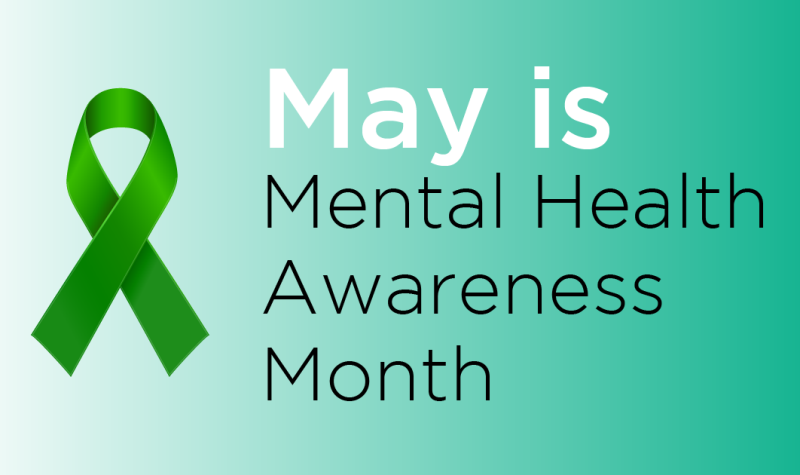|
Every year at graduation, the principals and superintendent and several other important people fill the stage and smile for a couple of hours, cheerfully handing out diplomas, shaking hands, posing for cameras. They rarely get much attention—they are all dressed in the same black robes and the focus is on the hundreds of graduates crossing the stage, as it should be. This year our graduation was held in the school’s auditorium. One student at a time was given five minutes and an audience of four family members. That one student crossed the stage, elbow bumped the principal, received her diploma from the superintendent, switched her tassel, and posed for pictures. All of it was recorded, including the commencement addresses and other pomp and circumstance that we will experience virtually later. The graduation ceremony took a week and many, many, many hours. The principal was still in the background, like always, as each graduate filed by. As these new grads started posting pictures of their separate, private graduation ceremonies on Facebook, I started noticing something about our principal that I think needs to be brought to the forefront. Because he is the principal, Mr. Glass hears about almost every problem in our school, and many are blamed on him, even if they are not his fault. We expect him to solve all these problems without creating more. On any given day, he must deal with disgruntled parents, exhausted teachers, troubled students, and a budget that does not come close to meeting all our school’s needs. He gets emails and phone calls that demand answers and add to his workload. If things go right at our school, students and teachers will get much of the credit. If things go wrong, he will take much of the blame. Even with all of this, Mr. Glass, like any good principal, loves his job. He serves our faculty, staff, and students with genuine kindness and infectious positivity. I saw this in the background of picture after picture on Facebook. Mr. Glass was grinning in each picture with real pride. With real affection. With real joy. For several days, for several hours each day, for almost three hundred students, Mr. Glass greeted each graduate with excitement, with warmth, with love. The smile you see in these pictures is not the fake upturn of lips for a camera. This is the look of an educator who is dedicated not just to his profession but to his students. I love this picture of Miranda. She has her diploma and has just switched her tassel. Mr. Glass is in the back, not posing for any picture. He looks on as Miranda’s family captures this moment. What I see in this picture is a principal understanding that his part in the commencement ceremony is something other than drudgery. What I see is an educator who delights in the successes of his students. I see a principal who knows Miranda is important, and so he does not have to pretend to be excited for her.
Graduation this year, like any other year, is not about the grown-ups—the teachers or principals or superintendents. It is and should be about our students. But I love that our principal has shown up in the background of so many pictures smiling.
4 Comments
On the first day of Mental Health Awareness Month, I thought perhaps I should share some about my own mental health. I’ve always been one to be fairly candid with my heart, but until the last couple of years my mental health was quite a secret. I have found that this is common with people with OCD and other mental disorders. We are afraid of what you might think of us if you really knew what was going on in our heads. And we often don’t know it’s a disorder. We just think we’re bad people. That’s what I believed. In a thousand ways for a thousand reasons. OCD manifests itself differently in every sufferer, but at its core, it thrives on uncertainty and breeds fear. It contorts thoughts, sees danger where there is none, makes nightmares real. It is powerful, destructive, and deceptive. There is nothing cute or funny or neat about it. Anyone who has the disorder will tell you that. Most people are familiar with the manifestation of OCD that causes people to want everything clean or orderly. While this is one way OCD can wreak havoc, it is not the only way and not even the most common way. Most people are unaware of the invisible obsessions and compulsions we are plagued by. Often OCD will focus on what we value and cause us to create irrational fears around those things. For me, and many others, it was my faith. I became a Christian as a young child and lived out my faith with a fierce devotion, both publicly and privately. There was no pretending—I was and am completely in love with Jesus Christ. As a young adult, I stayed active in church. Sunday school teacher, VBS director, wife to a seminary student, in the choir, on the women’s ministry counsel, Bible studies in my home. I was involved in everything I could be involved in. The quintessential good Christian woman. It was genuine. I did everything the church asked me to do. Everything I felt the Lord leading me to do. Everything I saw Scripture saying I should do. I was devout, in every area of my life. While I was a believer, saved by grace, I was also dealing with an undiagnosed mental disorder, and I had no idea. Please pause and read this slowly. It was not a spiritual issue. I was not in unrepentant sin. I was not outside of faith. I was not rebellious. Of course, I was not perfect, but I was living my life to please and honor the Lord as best as I possibly could. But my brain was not functioning properly. Let me write that again. My brain was not processing thoughts correctly. Again---the biology of my brain made it such that intrusive thoughts were getting stuck on a loop and creating anxiety so that I was having to do mental and physical compulsions or just deal with anxieties, and none of it was my fault. And I was completely unaware that I had a disorder—this is a common issue with people with OCD. It often takes people more than twenty years to get a proper diagnosis. They think the thoughts are their own, that this is just normal. Some of the intrusive thoughts were terrible things like –maybe God will send my kids to hell if I don’t pray the right way – maybe God hates me –maybe heaven is not real, and I need to know if I am to pursue life any further. And so on. OCD is a disorder that craves certainty. Faith exists on uncertainty. Before my diagnosis, I kept these thoughts, and so many more, a secret, except from my husband. I thought I was a blasphemous, sinful, hypocrite headed for hell. I thought that if I missed reading the Bible to my sons at night they would die in their sleep and go to hell. I thought if I prayed the wrong way, God would kill my children as punishment. None of this was logical, none of it was consistent with the God of the Bible. But OCD is not logical. The torment was endless. And remember, I did not know I had OCD. I thought this was real. And now, to the church--this is why we must be so careful how we approach those suffering with mental health issues. I heard something today online that broke my heart. The speaker, a Christian, said about mental illness that we suffer because of sin. While I appreciate his zeal for God’s righteousness, this is not what the hurting mental patient needs to hear. While I live in a fallen world, I don’t have OCD because of any particular sin I committed. Jesus said as much as he healed the hurting when he walked this earth. Do we tell those with cancer that sin made them sick? The stigma and shame around mental illness are already so pervasive and potent, we should not add to it. I also heard today that therapy and medicine is not sufficient, that those suffering from mental health issues are in treatment for years and not getting better and it’s because they need Jesus. Again, I appreciate the sentiment. But let me approach it this way: I spent more than thirty years in church and only got worse and worse mentally. In fact, I got so bad that I had suicidal ideations. I got so bad, that I had to pretend to be happy. Early on when I had mentioned some of my anxieties to a church leader, I was told that I needed to spend more time in Scripture. I was also told once, many years ago, that a Christian should never need to see a therapist or need antidepressants. I was told to just keep praying, of course that person did not know that I was using certain prayers as compulsions, making the OCD even worse. I didn’t know this either at the time. Thankfully, the church has progressed so much since then, but we obviously need to continue to make strides. My point is this. Mental health is not a spiritual issue any more than a heart condition is. We would never tell someone with a blocked artery to avoid the doctor. Nor would we chastise him by saying, “but going to the doctor is just not sufficient. Your heart is not getting better because you’re not praying enough” when their blocked artery does not improve. We would know it’s biology. OCD is a part of my brain. I cannot pray it away. I will have to deal with it every single day for the rest of my life. Really, it’s always been that way. The difference now is that I know what I’m dealing with and I’m equipped to deal with it. I also have a lot of support around me. I wish the same were true for all those suffering with the scary thoughts that creep in and threaten to steal everything they value. To those of you who have a friend or loved one with a mental disorder or illness, do not presume to understand. Their pain is too deep and too weird. Just be there, without judgment and with lots of love. To the Christian, I say this. Care for those with mental illness just as you would care for anyone else who is hurting, with a great deal of compassion and generosity. Those suffering with mental disorders need love, acceptance, and medical help. They need hope that comes from God. And they need sweet fellowship from you. If you are suffering with mental health issues, I would say this to you: I know there is shame and hurt because I have felt it, too. But I also know there is hope, even if you can’t see it or feel it. I cannot presume to know how to help you, but I can tell you there is help and I can urge you to get that help. I would also tell you that it is not your fault. Let that last part sink in. Not your fault. Mental illness does make you a bad person. |
Details
AuthorWelcome to my Blog! I am a wife, mother of three, high school English teacher, and a graduate of the Bluegrass Writers Studio at Eastern Kentucky University. Before anything else, I am a woman of faith. Archives
|










 RSS Feed
RSS Feed
